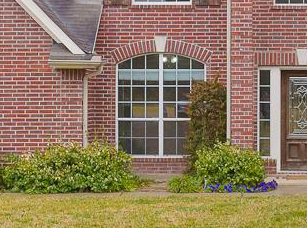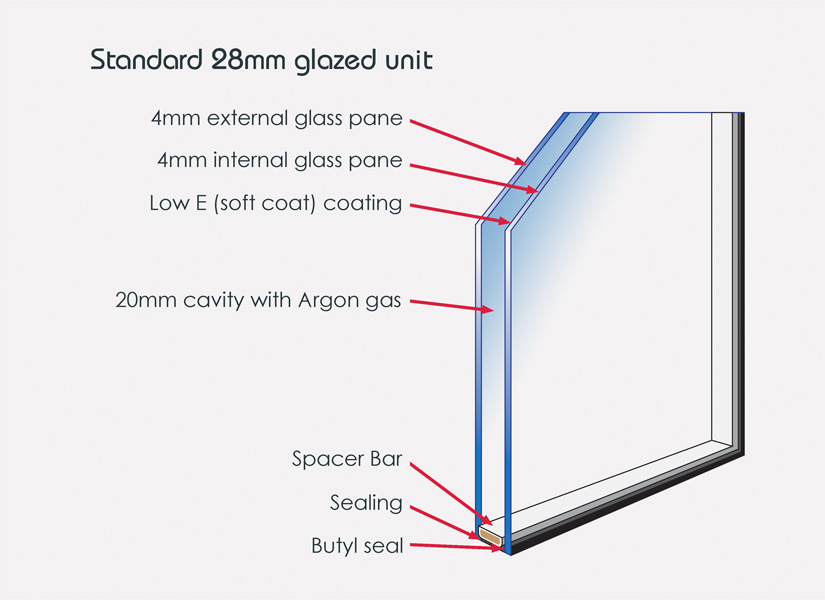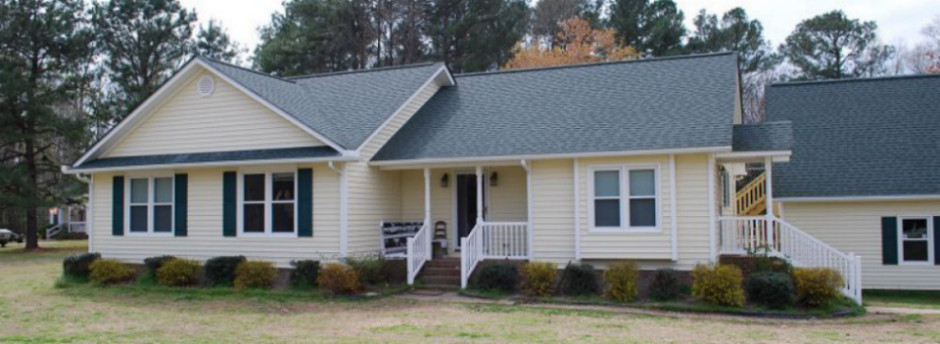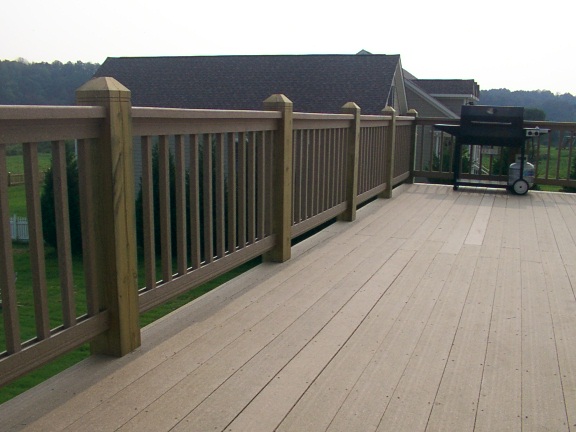

Double Pane Windows
Hello,
Just bought a house (8-9 yrs old), It’s brick, & has a large (arched-top) window in the very  front. Not including the arch it is around 8′ tall x 7′ wide (maybe a bit smaller). The double pane windows glass is real foggy. I have been told it has a pinhole (they didn’t say inside or out), and has allowed gas(?) to enter the double-pane (and one guy said possibly ‘stain’ the inside of the window?). My question is, is there ANY WAY to siphon the gasses/fog out, and fix the pinhole?? Or am I looking at a whole new window? If I DO need a new window, do you have any suggestions on the least expensive way to go? Is it worth it (energy-wise) to get double pane windows – like that one was? ANY advice GREATLY appreciated!!
front. Not including the arch it is around 8′ tall x 7′ wide (maybe a bit smaller). The double pane windows glass is real foggy. I have been told it has a pinhole (they didn’t say inside or out), and has allowed gas(?) to enter the double-pane (and one guy said possibly ‘stain’ the inside of the window?). My question is, is there ANY WAY to siphon the gasses/fog out, and fix the pinhole?? Or am I looking at a whole new window? If I DO need a new window, do you have any suggestions on the least expensive way to go? Is it worth it (energy-wise) to get double pane windows – like that one was? ANY advice GREATLY appreciated!!
Thank you,
Millie
Hi Millie,
Double pane windows consist of two pieces of glass separated by a spacer around the perimeter and made air tight usually with a butyl based sealant applied between the spacer and the glass panes. The size and shape of the spacers varies with different manufacturers and some designs do perform better than others. The space between the glass panes may contain air or, to improve thermal and acoustical properties, it may be filled with argon, krypton or xenon gas. Changes in temperature, stress during transport and installation, settling of the structure, faulty manufacturing, or impacts to the glass may cause the butyl seal to fail. Once the seal fails temperature differentials between the interior and exterior panes of glass will result in condensation forming between the panes. This condensation leads to the foggy appearance typical of seal failure in double pane windows. Once this happens there is no reliable way to reverse the damage. Repairs may be effected either by replacing the entire window unit or removing the panes from the unit and having new double pane glass installed in the existing frame. Some double pane windows may have a tag with the manufacturers name and a serial number affixed to the jamb. If a serial number is available, ordering a replacement glass, sash or unit from the manufacturer is often the most economical way to proceed. If no serial number is available many glass companies specialize in fabricating replacement glass in single or double pane configurations and will often come to your home and remove the old glass and install the new. Double pane windows are substantially more energy efficient than single pane windows. On a window of the size in question replacing it with single pane glass would result in a cold spot in your home, increase energy costs and lower resale value.
filled with argon, krypton or xenon gas. Changes in temperature, stress during transport and installation, settling of the structure, faulty manufacturing, or impacts to the glass may cause the butyl seal to fail. Once the seal fails temperature differentials between the interior and exterior panes of glass will result in condensation forming between the panes. This condensation leads to the foggy appearance typical of seal failure in double pane windows. Once this happens there is no reliable way to reverse the damage. Repairs may be effected either by replacing the entire window unit or removing the panes from the unit and having new double pane glass installed in the existing frame. Some double pane windows may have a tag with the manufacturers name and a serial number affixed to the jamb. If a serial number is available, ordering a replacement glass, sash or unit from the manufacturer is often the most economical way to proceed. If no serial number is available many glass companies specialize in fabricating replacement glass in single or double pane configurations and will often come to your home and remove the old glass and install the new. Double pane windows are substantially more energy efficient than single pane windows. On a window of the size in question replacing it with single pane glass would result in a cold spot in your home, increase energy costs and lower resale value.
Good luck with your window repairs,
Tony
Did you enjoy this post? Tell us what you think in the comments box below.
Want to see more?
Subscribe to our RSS feed or Subscribe by e-mail
Wood’s Home Maintenance Service offers solutions for a wide range of building, maintenance and repair needs. Give us a call or click the button below to contact us today for a free estimate.





Tony – I want to apologize for taking so long to read your EXCELLENT response. I’m still trying to move in the house and juggle everything else, and I’ve just been too busy . I can’t thank you enough for taking the time to give me a little of your informative expert advice.
Tony,
I have a technical question concerning double pane glass. What causes the filmy look inside double pane windows with failed seals? I need more than the moisture answer. Here’s the situation: On July 26, we experienced a severe hail storm with 1 1/2 inch hail driven nearly horizontal into three sides of our home. Prior to the hail storm we were aware of one “fogged” window of which we were in the process of arranging for glass replacement. After the hail, we noticed 8 more windows were “fogged.” They might have been fogged prior to the storm, but I doubt it since at least 2 are opened nightly. The insurance company refuses to cover them because the “film on the interior of the double panes indicates a long duration of failure.” However, might there be another explanation for the film producing the foggy appearance?
* We live in northern Colorado.
* The eight additional windows are on the sides of the house hit by the storm.
* I know impact rarely causes fogging.
* I understand that “solar pumping” can cause moisture to enter the evacuated area between the windows.
* All double pane windows eventually fall victim to solar pumping.
* According to your diagram, the “low-E soft coating” is on the evacuated side of the interior window.
* The “film” referenced by the insurance company is on the inside of the outside pane.
One of the windows is in our sunroom. That room has a dampened temperature variation curve that follows the outside temperatures. The window forms frost on the house side of the inside pane during winter nights.
* These are Hurd windows (known to have deficient seals) installed in 2005.
* An inverted canned air test showed 30 of our 40 windows have moisture in the evacuated cavity, while only 9 show visible failure.
Could the gas in the cavity, the “low-E” coating, or something else play a part in the filmy appearance?
Mr. Macy,
Check your email for my reply